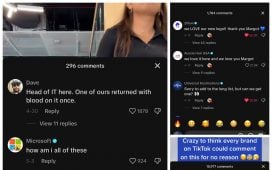The fledgling outline of a bird made entirely from polaroids is beginning to form on a wall of Twitter’s office in Dubai’s Internet City. Three people sit in a room built for 20 and boxes remain unpacked in the corner. “It’s still early days,” I am reminded by Benjamin Ampen, the recently- appointed head of sales for the Middle East and North Africa – or as he prefers to call it Twitter Arabia. “If you spend a little time here, you know the name MENA – you put Saudi in the same basket as Morocco and Lebanon – doesn’t make sense,” he says. “I try to avoid it. When we opened the office we used the hashtag TwitterArabia, some- thing I personally like.”
Four years after Twitter helped fan the flames of the Arab Spring – or the Middle East and North Africa Spring if we’re going into semantics – the social media giant finally opened its first regional office in August. Like social rival Instagram, Twitter likewise has recently taken a big step in embracing Middle Eastern markets this year, although it is still a good three years behind arch-rival Facebook, which opened a base in 2012.
Previously, Twitter left its commercial operations to Cairo-based Connect Ads, which helped launched the advertising platform here in 2013. According to Ampen, former head of sales for Continental Europe and new markets, Connect Ads has been doing a ‘great job’. So why is there a need for a physical base in a city as expensive as Dubai? “[Connect Ads] are an exten- sion of my team,” Ampen explains. “So we are going to work with them to bring more resource to the region on top of everything that’s been done before, so that’s the reason for the office.”
Unsurprisingly the plat- form’s growth in the region has been a major driving factor in opening and efforts are now been made to ‘aggressively’ grow the Dubai hub. MSN Arabia’s former editor-in-chief Kinda Ibrahim has recently joined Ampen to serve as director of media partnerships. And talent in the fields of market- ing and research are now being sought. Tangible statistics to demonstrate this growth remain sketchy; Ampen refuses to divulge the latest regional breakdown and the last active user count for the Middle East – 5.8 million – was released nearly two years ago.
However, ‘big cultural events’ such as Ramadan and last month’s F1 Abu Dhabi Grand Prix have provided some useful indicators. “Between Ramadan we had about 8.4 billion impressions left by tweets that were men- tioning Ramadan. It’s just crazy. We had discussions around White Friday, the Abu Dhabi Grand Prix. And when we have a look at this we can see the growth in con- versation and then from a revenue perspective we are now working with some of the top brands, local brands, so it’s also showing the growth on the business side.”
From a revenue perspec- tive,Twitterhassurpassedits own expectations globally; its third quarter earnings showed its overall revenues had risen by 58 per cent annually to $569 million – largely helped by a 67 per cent rise in advertising reve- nue. But all this was overshadowed by chief exec- utive Jack Dorsey’s decision to lay off 336 employees – 8 per cent of its workforce – after user growth failed to meet expectations. Twitter’s current base of 320 million active users puts it behind Instagram, which has 400 million regulars, and Facebook, which leads the way by a significant margin of 1.4 billion users. And while ad engagement and videos snowballed on the platform, the average cost per ad engagement continued to decline substantially.
Hopes to bolster Twitter’s dwindling attraction have largely been placed in the recently-launched Moments, alongside video features Vine and Periscope. The latter of which was apparently blocked briefly in the United Arab Emirates in August, although the Tele- communications Regulatory Authority later asserted it was simply a “glitch”.
However, despite these hurdles, Ampen is confident that Twitter’s new venture eastwards will be a success. The platform already has plans to work with Etisalat and Dubai Tourism, along- side forming partnerships with leading broadcasters. “It’s still really, really early days. We’re growing a lot, the fact that we’re opening offices in a lot of different places in the world, the fact that this team here is growing a lot,” he says.
“We are constantly trying to work more with our users, our advertisers. So Twitter is here to stay because depend- ing on the kind of business you have, we have the solution here to reach your objectives. From a consumer perspective, Twitter is about information and interest and that’s here to stay. All of us want to know what’s happen- ing in the world. If we are always the platform of choice to know what’s best or what’s happening in the world 10 or 15 minutes before any other means, then our users will keep on coming and then you’ll grow.”









